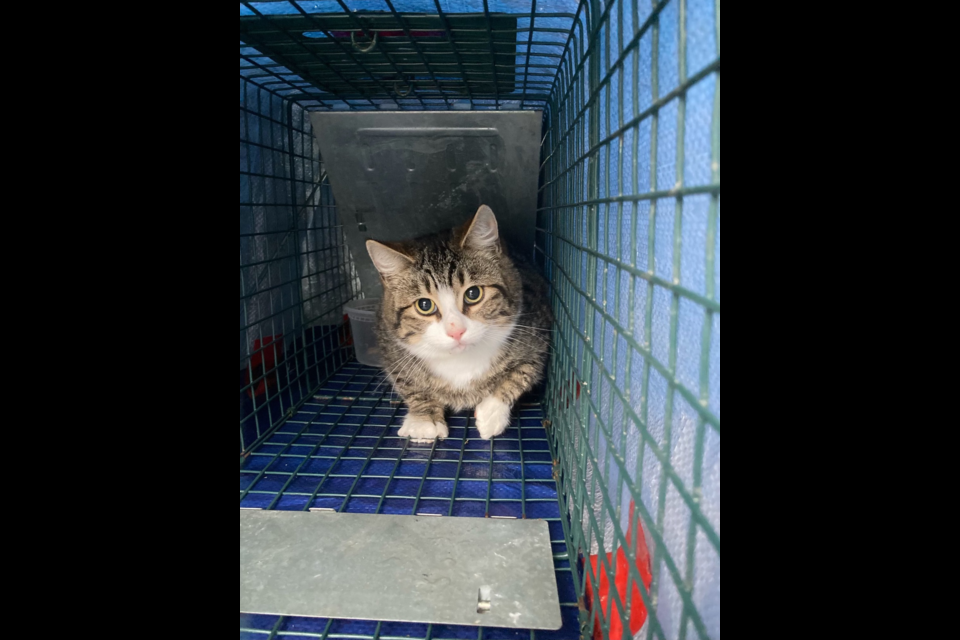Cats have a reputation for being lone, finicky and indifferent creatures, however, they are social animals. Felines will form communities or colonies if abandoned and/or have little human contact.
(WOWs) founder Susan MacKay said the charity has another project on the go: , or WOWs-Meows.
WOWs has assisted in marine mammal rescues in the past, such as detangling otters from fishing nets and assisting a pod of dolphins out of a bad situation. However, MacKay said that the organization does take on rescue and response missions for wild or domestic animals when needed.
The feral cat rescue began in September 2022, with the purpose of giving the cats a chance at a better life, while reducing the feral cat population in a humane manner.
"I didn't expect that we would wind up doing the whole initiative, but when nobody else would, we couldn't walk away from it," said MacKay. "After discussions with the board, and finding the need was greater than we initially expected, this initiative was born."
Initially, WOWs was asked to assist with a feral cat colony and its kittens on Texada Island. According to the WOWS-Meows website: "We were also hoping to prevent the rumoured threats of poisoning of animals, which is detrimental to all wildlife and other domestic animals."
According to MacKay, the rescue team found 17 cats with suspected poisoning that were dumped in five locations. The rescue group found, retrieved and properly disposed of the cats, including two that the group believes were someone’s pets.
"We wound up with 26 kittens total, but I'm losing count, and all but one was adopted out," said MacKay.
Another colony gets help
The rescue and response program is volunteer run and has now expanded, as of January 2024, to another area in qathet Regional District.
"We got a call from north of town about a colony after doing all the spay and neuters for the cats on Texada," added MacKay.
The rescue group has partnered with a veterinarian in Comox on Vancouver Island and now has offered to take some of the kittens.
Controlling growing population
"We're well over 80 cats that we have spayed and neutered," said MacKay. "The majority of the reason [people call] is because the exponential growth of the colony literally goes up."
MacKay emphasized that one pair of cats that are not spayed or neutered can potentially, after seven years, wind up with 42,000 felines in a colony.
Cat finds loving home
One recently rescued and adopted cat had been abandoned and apparently its owner had passed away.
"He wound up living a life as a feral and fighting for his life; he had a number of scars," said MacKay. "One of his ears actually was folded over because of scar tissue, not because he was that type of breed."
The cat was around 10 years old and had been left to live in the wild until he recently found a family to adopt him.
Volunteers needed
"I have an amazing group of volunteers from Texada, which is where it all started," said MacKay. "But we are looking for more help with cleaning the holding pens, and they need food, water and cleaning twice a day."
MacKay said WOWS has been sending six cats at a time to the veterinarian in Comox, which takes time and money. Recently one of the rescued cats was adopted by that vet office.
"It does take the community to make this work," said MacKay. "The community has to realize that they're not going to be overrun with these cats because we've curtailed that population explosion."
Donations and funds needed
Although the animal rescue organization has received some donations and funding, most of it was from last year. MacKay said WOWs-Meows works closely with vets, primarily on Vancouver Island, due to lack of local capacity.
"We continue running bottle drives and people’s donations are instrumental in helping fund our direct costs," added MacKay.
To volunteer, donate, foster or adopt a kitten or cat, go to or call MacKay at 604.483.8323.
Join the for the top headlines right in your inbox Monday to Friday.

